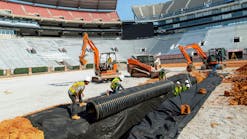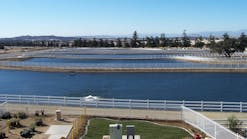About the author: Lisa M. Ochsenhirt, Esq., is an attorney with AquaLaw PLC. Ochsenhirt can be reached at [email protected].
Lisa M. Ochsenhirt
undefinedOver the past decade, municipalities that own or operate a municipal separate storm sewer system (MS4) have faced a trend of expanding MS4 permits that include not only more robust programmatic requirements, but also costly best management practices (BMPs) to address impaired waters covered by total maximum daily loads (TMDLs). Implementation costs have skyrocketed to the point of being unaffordable for many communities.
MS4 & MEP
An MS4 owner may reasonably expect that its regulator will adopt more extensive permit obligations over time through the iterative process where permittees and regulators learn lessons about managing storm water programs more effectively. An MS4 owner should not expect or accept a permit that contravenes the MS4 compliance standard in the Clean Water Act (CWA) known as maximum extent practicable (MEP). Section 301 of the CWA generally mandates that NPDES permits include water quality-based effluent limits that are as stringent as necessary to ensure that permittees’ discharges comply with all applicable water quality standards. 33 U.S.Code § 1311(b)(1)(C) Section 402(p) exempts MS4 permits from this requirement and replaces it with a different standard; MS4 permittees must “reduce the discharge of pollutants to the [MEP].” This means that an MS4 permit should be achievable based on an MEP level of effort over a five-year permit term.
U.S. EPA clarified its views on MEP and MS4 permitting in its 2014 Guidance. It explained that since 2002, regulators have gained “considerable experience” writing TMDLs to address storm water sources. Nonetheless, storm water discharges “remain a significant cause of water quality impairment in many places,” resulting in a need to make permits “clear, specific and measurable.” EPA supported MS4 permits that include numeric effluent limitations if an MS4 discharge has the reasonable potential to cause or contribute to the violation of a water quality standard. Most importantly, EPA said the CWA gives the NPDES permitting authority the “discretion to include requirements for reducing pollutants in storm water discharges, as necessary for compliance with water quality standards.”
MS4s were understandably taken aback by EPA’s controversial stance, which suggests EPA can impose permit requirements that go beyond the MEP compliance standard. Any requirement that goes beyond MEP is by definition impracticable. EPA’s view has been challenged in federal court in response to its issuance of MS4 general permits in Massachusetts and New Hampshire. It is unclear whether the current administration will stand by earlier statements or reverse course.
Practicable Permits
In the meantime, several states are considering reissuing MS4 permits that address water quality standards and TMDLs without appropriately referencing MEP. The Oregon Department of Environment Quality (DEQ) is issuing a general permit for smaller MS4 communities. It not only included text prohibiting a permittee from discharging pollutants that would “cause or contribute to a violation of a water quality standard” without any MEP reference, but also imposed an obligation that a permittee who violates this requirement must implement corrective action within 60 days, unless DEQ approves a later date. This suggests that the state’s smallest MS4s could be obliged to spend unlimited dollars over a short timeframe to reduce pollutants to levels consistent with water quality standards. This is not consistent with the CWA’s MEP standard.
As a result of EPA imposing permit requirements beyond MEP, some small MS4 communities must implement programs to fully comply with TMDL wasteload allocations on EPA’s schedule, which is unlikely to be practicable for many communities.
Practicability is serious business because an MS4 permittee is subject to enforcement by EPA, the state regulator and citizen groups for non-compliance. MS4 owners should object to any permit requirement that exceeds the CWA MEP compliance standard. Not only is this legally objectionable, but also is a potential path to future enforcement if permit mandates are not met.






